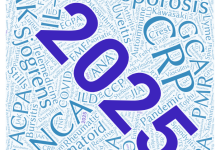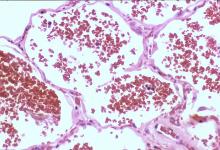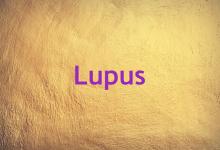Biosimilar Reports – February 2017 Save

Biosimilar reports is an ongoing series dedicated to advances, discussions and developments in biosimilar agents intended for use by rheumatologists. RheumNow provides updates on news, publications, overview articles, clinical trials, regulatory and legal issues surrounding biosimilar development and use. Many of these items were compiled from news sources, journal articles and regulatory documents and are cited and linked within each section.
News
- Rheumatoid arthritis (RA) affects seven million individuals worldwide and its prevalence is expected to grow to just over 8.5 million by 2023. First-line treatment, often a disease-modifying antirheumatic drug (DMARD), According to Visiongain, 92.3% of global RA sales in 2015 came from biologics; estimated to be over a $20 billion market by 2020.
- A study conducted by RNCOS on the Biosimilar Market, suggests that the market, which was worth $1.89 Billion USD in 2014, is expected to reach $25.53 Billion USD by 2020, growing at an impressive CAGR of 54.4
- British Society of Rheumatology Position Statement on Biosimilars Jan. 2017: The BSR recommends that biosimilars should be prescribed by brand name rather than by their International Nonproprietary
Name (INN). The BSR supports the inclusion of biosimilars as treatment choices, and that clinical effectiveness and patient safety (and not financial savings) should be the overriding principles behind prescribing or switching - treatment choices should be made on a case-by-case basis. Bisoimilar substitution should only be made with physician consent and patient agreement. http://buff.ly/2ldWyDU - Biosimilars are not Generics: Biosimilars and generics differ not only in size, stability clinical effectiveness and patient safety (and not financial savings) should be the overriding principlesand characterization, but also in how they are made, how they behave over time and their mode of action. While generics must be identical, biosimilars are expected to have a natural degree of variability, similar to the variability seen with different lots of the same biologic. Biosimilars are versions of the reference product. Aspirin (a generic) is 180 daltons in size, remains stable over time and initiates little or no immune response. By contrast, a monoclonal antibody biosimilar can be 150,000 daltons, degrades over time and can generate a significant immune response. http://buff.ly/2kVIqAk
- Biosimilar Naming: In Europe, biosimilars share the same name as the reference product and are not required to have a random four-letter suffix. In the US, FDA rules on naming are not aligned with the International Organization For Standardization (ISO) for the identification of medicinal products (IDMP). In the US, the biosimilar will bear a 4 letter suffix that will unfortunately not be easily identified or relevant in the nations outside of the U.S.
Clinical Trials & Journal Articles
- Kvien T, et al. NOR-Switch Study. http://rheumnow.com/content/nor-switch-study-shows-its-safe-switch-biosi...
- Lakhanpal A, et al. Biosimilars in rheumatic diseases: structural and functional variability that may impact clinical and regulatory decisions. Clin Rheumatol. 2016 Dec;35(12):2869-2875. A review of the production, use, and regulation of biosimilars and proposal for modifying the constraints on biosimilar regulations, http://buff.ly/2jBTsKI
- Braun J, Kay J. The safety of emerging biosimilar drugs for the treatment of rheumatoid arthritis. This article covers available safety data on biosimilars in RA, in particular for the TNF inhibitors and rituximab. The clinical safety of the biosimilars is compared with their reference product. http://buff.ly/2lrot3E
- REFLECTIONS B538-02 study from Pfizer has shown its adalimumab biosimilar, PF-06410293, met its primary endpoint in a phase 3 trial. http://buff.ly/2kRsz25
- Emery P, et al. A phase III randomized, double-blind, parallel-group study comparing SB4 with etanercept reference product in patients with active rheumatoid arthritis despite methotrexate therapy. SB4 was shown to be equivalent with ETN in terms of efficacy at week 24. SB4 was well tolerated with a lower immunogenicity profile. The safety profile of SB4 was comparable with that of ETN. http://buff.ly/2l1DYyw
- Bae SC, et al. A phase III, multicenter, randomized, double-blind, active-controlled, parallel-group trial comparing safety and efficacy of HD203, with innovator etanercept, in combination with methotrexate, in patients with rheumatoid arthritis: the HERA study. Compares the HD203, an ETN biosimilar (from Hanwha Chemical) to etanercept in RA. Met is primary end point with equivalent ~ 83% ACR20 responses at week 24. http://buff.ly/2l1Pv0Z
- Griffiths CE, et al. The EGALITY study: A confirmatory, randomised, double-blind study comparing the efficacy, safety and immunogenicity of GP2015, a proposed etanercept biosimilar, versus the originator product in patients with moderate to severe chronic plaque-type psoriasis. Demonstrated equivalent efficacy and comparable safety and immunogenicity of Novartis biosimilar Erelzi (GP2015) against ETN. Also examined switching. http://buff.ly/2l1JT6X
- Wynne C, et al. Bioequivalence, safety and immunogenicity of BI 695501, an adalimumab biosimilar candidate, compared with the reference biologic in a randomized, double-blind, active comparator phase I clinical study (VOLTAIRE®-PK) in healthy subjects. http://buff.ly/2l1FYqQ
Overviews & Reviews
- BiosimilarsCME.org has an overview curriculum on biosimilars. 8 modules providing CME/CE credits. http://buff.ly/2kGBRN6
Practice & Physician Attitudes
- Healio article reports the results of a Biosimilars Forum survey on physician attitudes regarding biosimilars. They found among 1,201 biologic prescribing specialists only 12% trusted the FDA’s “extrapolation of indications”. Also nearly 80% did not realize the FDA designation “interchangeable” allows a pharmacist to switch between the originator and biologic. About 45% believed biosimilars were safe to use and nearly 75% trusted the FDA’s biosimilar approval decisions. http://buff.ly/2kRCbd1
Patients
- Online Patient Resource on Biosimilars. An online interactive web resource has been developed by ProPatient, Med-IQ, and the IFAA, an international foundation for autoimmune & autoinflammatory disease patients. http://buff.ly/2kRK7Lk
Regulatory & Pharma
- FDA Interchangeability Guidance Document: was released in January 2017 http://buff.ly/2k9f79y The "draft" guideline is designed to aid manufacturers and payors on how to handle the issue of interchangeability - meaning the substitution of a biosimilar for its innovator biologic. This may allow a prescriber to choose the biosimilar (e.g., Inflectra) in place of the originator (e.g., Remicade), but may also allow pharmacists to substitute a biosimilar without intervention from a healthcare provider. http://rheumnow.com/content/fda-issues-draft-guidance-biosimilar-interch.... While many welcome the long-awaited guidance document, some feel the requirements for interchangeability have been set too high, largely by requiring switching studies that are more complicated, costly and lengthy. FDA also says that sponsors may use extrapolated data to support interchangeability for multiple indications if a sponsor is able to provide adequate scientific justification for doing so. The Biosimilars Forum has issued a statement
- FDA Final Guidance document on Biological Naming: (http://buff.ly/2lVXOtq) FDA explains final guidance on the use of FDA-designated suffixes. Under this naming convention, the nonproprietary name designated for each originator biological product, related biological product, and biosimilar product will be a proper name that is a combination of the core name and a distinguishing suffix intentionally meant to be devoid of meaning and composed of four lowercase letters. The biologic name will consist of a core name and an FDA-designated suffix. Proper names designated by FDA for originator biological products, related biological products, and biosimilar products will include a combination of a core name and a distinguishing suffix. The proposed suffix should:
- Be unique
- Be devoid of meaning
- Be four lowercase letters of which at least three are distinct
- Be nonproprietary
- Be attached to the core name with a hyphen
- Be free of legal barriers that would restrict its usage
- The proposed suffix should not:
- Be false or misleading, such as by making misrepresentations with respect to safety or efficacy
- Include numerals and other symbols aside from the hyphen attaching the suffix to the core name
- Include abbreviations commonly used in clinical practice in a manner that may lead the suffix to be misinterpreted as another element on the prescription or order
- Contain or suggest any drug substance name or core name
- Look similar to or be capable of being mistaken for the name of a currently marketed product (e.g., should not increase the risk of confusion or medical errors with the product and/or other products in the clinical setting)
- Look similar to or otherwise connote the name of the license holder
- Be too similar to any other FDA-designated nonproprietary name suffix
- Remicade competition: historically infliximab is one of J&J's biggest products, generating sales of over $5.3 billion in the first nine months of 2016. Efforts by the company to block the introduction of Celltrion's Remicade biosimilar (Inflectra) were rejected by the courts in late 2016 (http://buff.ly/2dVDNmP). Although the introduction of Remicade biosimilars in markets outside of the U.S. has been highly successful, these are in countries who were afforded steep discounts on the biosimilar (as much as 70%). The impact of modest (15%) discounts for Inflectra in the US remains to be seen. Interestingly, the use of Remicade and Enbrel biosimilars has had only modest effects on European sales of Humira. http://buff.ly/2lTn7j3
- Is Immunogenicity an Issue: A recent DIA had a discussion on whether switching from the reference biologic to the biosimilar will result in immunogenicity, or an unwanted immune response and adverse effects in patients. Sponsors are concerned that immunogenicity, though theoretical, may become big barrier to biosimilar acceptance. Nevertheless a review of this topic showed the “majority of literature to date shows there isn’t an increase of immunogenicity or safety concerns in the act of switching from a reference product to a biosimilar.” http://buff.ly/2lVVRNA
- Biosimilar Naming: The FDA’s current proposal to include a random, four-letter suffix when naming a biosimilar. This has been a contested issue by manufacturers, regulators in Europe (who won’t use these suffixes), and at the GPhA Biosimilars Council’s Leading on Biosimilars conference. Once the FDA releases its final guidance on naming, the battle against the suffix may be resolved. Beyond the use of random suffixes names there is concern that there may be greater confusion or more mistakes, in turn making pharmacovigilance worse. The naming issue could also get more complicated once interchangeability becomes a reality. http://buff.ly/2lrHd31
Legal Issues
- Biosimilar competition: While biosimilars could bring moderately lower prices, they also represent a serious competitive threat to a number of drug makers, such as Amgen and AbbVie, that are highly reliant on their mainstay biologics. Biosimilars will come to command a greater share of the biologics market, and with that, should begin to cut into lucrative revenue streams for several companies. It is expected that Abbvie will vigorously defend its patent position against the surge of adalimumab biosimilars. r 60% of AbbVie's product revenue, for example, come from sales of Humira (see chart below). The main composition-of-matter patent in the U.S. for Humira expires this month, and the comparative patent in the E.U. will expire in most European countries in October 2018.
- Legislation: 19 states and Puerto Rico have enacted biosimilar substitution legislation. Eight states have pending legislation. Most legislation requires prescriber notifications to include drug product name and manufacturer. The notification must be done electronically through the prescriber’s electronic health record (EHR), although fax, phone or other means may be used as a backup if the EHR is offline for some reason. There is variability among the states as to the window for notification, such as 48 hours versus 5 business days. A popular provision requires the pharmacist and the physician to retain records of substituted biosimilar medications.
- AbbVie doesn't expect to see biosimilar competition in the U.S. anytime soon, though, as it has Amgen stuck in court over claims of patent infringement. http://buff.ly/2lrO4JM
- “AbbVie seeks to enjoin Amgen from manufacturing and marketing Amjevita, and asserts infringement of ten patents in its Humira patent estate.”. http://buff.ly/2lTHcpH
- Review of the legal wrangling’s between the biosimilar and innovator manufacturers. http://buff.ly/2lTIgK8 http://buff.ly/2lWl4Yo










If you are a health practitioner, you may Login/Register to comment.
Due to the nature of these comment forums, only health practitioners are allowed to comment at this time.